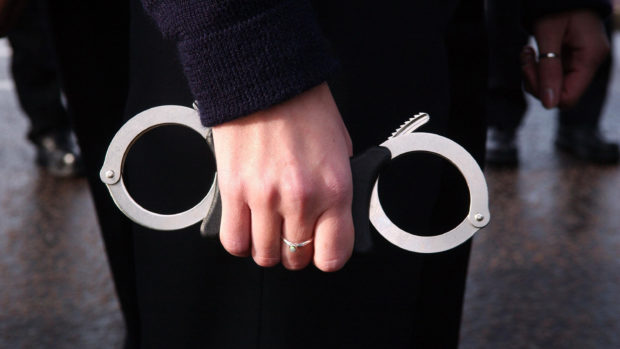Catching a criminal suspect should usually be left to the police, but circumstances sometimes arise where a member of the public can intervene.
This is known as a citizen’s arrest. But how does it work, and should you ever attempt one? Here’s what you need to know:
What does the law say about a citizen’s arrest?

In England and Wales, the Police and Criminal Evidence Act 1984 gives members of the public the power to detain someone without a warrant, provided the suspect is committing, or is believed to have committed, an indictable offence – that’s a more serious offence that would be tried in a Crown Court.
The law in Scotland is slightly different – there is no provision for citizen’s arrest in Scots Law.
However, there is a common law position that means using the minimum required force possible a member of the public can ‘arrest’ someone committing a serious offence.
Sean Caulfield, criminal defence lawyer at Hodge Jones & Allen, says there are a few things to consider before making a citizen’s arrest.
He said: “The question you need to ask yourself is, ‘is this a serious crime?’, ‘is there someone hurt in front of you?’, or ‘is the assailant or the thief getting away?’”
“If answers to your questions are Yes, and that there is a genuine loss here to someone, or there is injury or risk of further injury to someone, then you might want to act.”
What is the difference between a police constable making an arrest and a citizen’s arrest?

The laws differ on the power of arrest. Section 24 of the Police and Criminal Evidence Act 1984 states a constable can arrest “anyone who is about to commit an offence”, regardless of whether the offence is indictable.
A citizen’s arrest, explained in Section 24A of the Act, states a person other than a constable may arrest without a warrant in the case of: Anyone who is in the act of committing an indictable offence; Anyone whom he has reasonable grounds for suspecting to be committing an indictable offence.
“The police can arrest someone who is about to commit an offence – a citizen cannot do that,” Caulfield added.
“A citizen can arrest someone who is committing an offence or has reasonable grounds to believe an offence has been committed.
“Another test a citizen must meet is that the offence committed is of a serious nature, ie indictable offence, which doesn’t apply to a police officer. A police officer can arrest a person for any criminal offence. The bar is slightly higher for a citizen.”
How do you make a citizen’s arrest?

The member of the public has to let the suspect know they are making a citizen’s arrest. There is no specific wording to use when making the arrest.
They also need to explain the reason for the arrest, carry it out using only reasonable force, and then call the police immediately.
Is it safe to perform the arrest?

The advice from the police is not to make a citizen’s arrest if the person doing it is putting themselves or any other person in danger.
A spokesman for South Wales Police explains in Wales Online: “There are many instances where members of the public have taken it upon themselves to intervene when a crime is being committed, and, of course, they should be commended for the often selfless qualities that they display.
“However, making a citizen’s arrest could very easily put individuals at serious risk.
“Our advice is to always contact the police because officers are trained and sufficiently equipped to deal effectively with any kind of situation.”
Can a citizen performing an arrest get it wrong?

This is where it gets tricky because not all offences are indictable.
“Essentially, indictable offences are more serious offences,” Caulfield said.
“For example, an indictable offence would be a burglary or assault causing actual bodily harm, while drunk and disorderly behaviour falls under non-indictable offence.”
He adds that indictable offences are not listed anywhere.
“You have to look them up,” Caulfield said. “There are so many different criminal offences you can’t remember all of them. Even lawyers do not know immediately whether each individual offence is indictable or not.”
What happens when a citizen’s arrest has been made on a non-indictable offence?

According to Caulfield, the situation is what lawyers would call a lacuna – “a sort of gap in the law when you use reasonable force to detain someone when you, as a citizen, don’t have the power to do so”.
It is possible to fall foul of this grey area, although Caulfield believes it is, in most circumstances, unlikely that a person making a citizen’s arrest on a non-indictable offence would later be arrested or prosecuted.
“I would like to think the individual is protected from some sort of prosecution if they have got it fundamentally wrong,” he said.
“The Crown Prosecution Service (CPS) has a two-stage test to determine whether to bring any action against someone who has carried out a citizen’s arrest and got it wrong.
“The first test is that is there an evidential basis for bringing this case – the evidence that the person committed the act. The second is that the CPS must also look at whether it is in the public interest to prosecute you.
“I think 99.9% of the public would say it’s not in the public interest to prosecute an individual who arrested someone as a citizen and got it wrong.”
